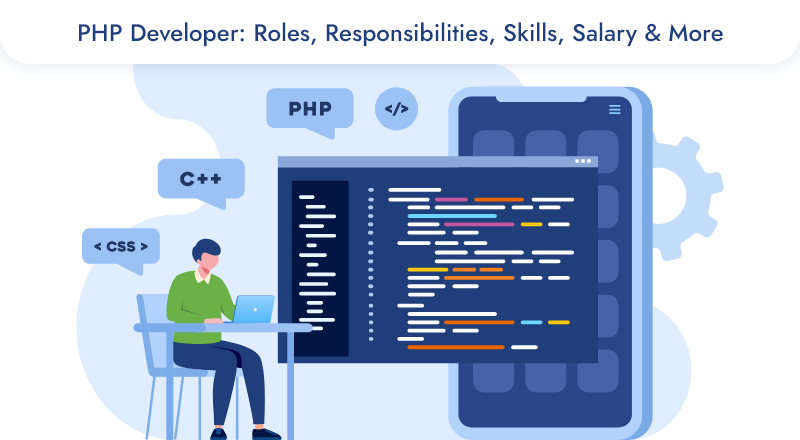Rise by Six: Your Daily Dose of Inspiration
Explore insights and stories that elevate your day.
PHP Development: The Secret Sauce Behind Dynamic Web Experiences
Unlock the secrets of PHP development and discover how it powers dynamic web experiences that captivate users and drive engagement!
Understanding PHP: How It Powers Dynamic Websites
PHP, which stands for Hypertext Preprocessor, is a powerful server-side scripting language that has been a cornerstone of web development since its inception in 1994. It enables developers to create dynamic websites that can interact with databases, manage sessions, and perform numerous tasks that static HTML alone cannot. With PHP, developers can embed scripts into HTML to produce dynamic content tailored for each user. This capability is essential for creating modern web applications that require user interaction, such as content management systems (CMS), e-commerce sites, and social networking platforms.
One of the key features of PHP is its ability to access and manipulate databases, primarily using MySQL. This interaction allows dynamic data retrieval and storage, empowering websites to present personalized content based on user preferences and activity. Additionally, PHP supports a range of frameworks, such as Laravel and Symfony, which streamline the development process and promote best practices. In summary, understanding how PHP powers dynamic websites is crucial for anyone looking to create sophisticated web applications that enhance user experience and engagement.

Top 5 PHP Frameworks for Building Robust Web Applications
When it comes to developing robust web applications, choosing the right PHP framework can vastly impact your project's success. Here are the top 5 PHP frameworks that have gained immense popularity among developers:
- Laravel: Known for its elegant syntax and comprehensive features, Laravel makes it easy to develop scalable applications.
- Symfony: This framework is ideal for complex enterprise-level applications and offers a wide array of reusable components.
- CodeIgniter: Lightweight and straightforward, CodeIgniter is perfect for developers who want a simple yet efficient solution.
- Yii: Recognized for its performance, Yii is suitable for high-traffic applications and provides excellent support for RESTful APIs.
- CakePHP: This framework promotes rapid development and helps avoid unnecessary complexity with its convention over configuration approach.
Each of these PHP frameworks has its unique strengths, making them suitable for various types of web applications. For developers looking to build robust web applications, considering factors like community support, documentation, and performance is crucial in making the right choice. Whether you prioritize scalability with Laravel or prefer the simplicity of CodeIgniter, these frameworks offer a solid foundation for your next project.
Is PHP Still Relevant in 2023? A Deep Dive into Its Evolution
As we venture into 2023, the question remains: Is PHP still relevant? Despite the emergence of numerous programming languages and frameworks, PHP continues to power over 75% of websites utilizing server-side scripting. Its longevity can be attributed to continual updates, with recent versions introducing features that enhance performance, security, and developer experience. The language’s simplicity and ease of integration with various databases have made it a staple for web developers, especially for projects like WordPress, which dominates content management systems.
In addition to its robust ecosystem, PHP has evolved through the adoption of modern programming paradigms. Frameworks like Laravel and Symfony have transformed the way developers utilize PHP, allowing for the creation of complex applications with cleaner, more maintainable code. Furthermore, PHP’s increasing compatibility with popular technologies such as REST APIs and its integration with cloud services ensure that it remains a strong contender in the web development arena. Thus, as we assess PHP's significance in 2023, it is clear that PHP is not just alive, but adapting to the evolving landscape of programming, reaffirming its position in the developer community.